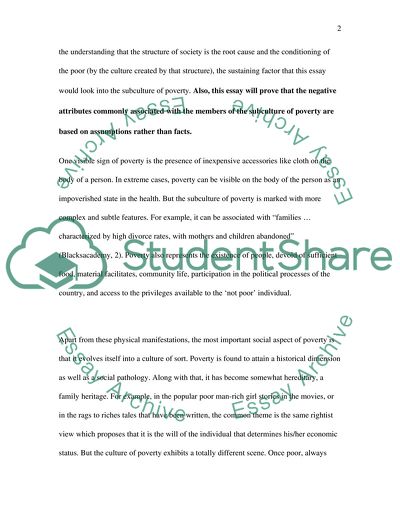Cite this document
(Theories About the Causes of Poverty Research Paper - 1, n.d.)
Theories About the Causes of Poverty Research Paper - 1. Retrieved from https://studentshare.org/social-science/1751167-the-subculture-of-poverty
Theories About the Causes of Poverty Research Paper - 1. Retrieved from https://studentshare.org/social-science/1751167-the-subculture-of-poverty
(Theories About the Causes of Poverty Research Paper - 1)
Theories About the Causes of Poverty Research Paper - 1. https://studentshare.org/social-science/1751167-the-subculture-of-poverty.
Theories About the Causes of Poverty Research Paper - 1. https://studentshare.org/social-science/1751167-the-subculture-of-poverty.
“Theories About the Causes of Poverty Research Paper - 1”, n.d. https://studentshare.org/social-science/1751167-the-subculture-of-poverty.


